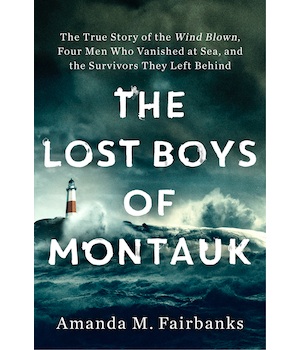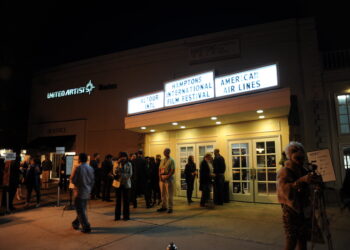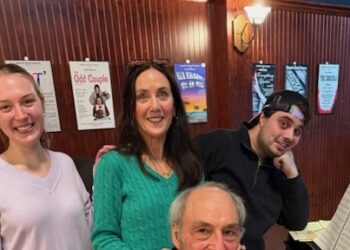East End-based journalist Amanda M. Fairbanks has written her first narrative nonfiction book, The Lost Boys of Montauk. In an interview with Hamptons.com, Fairbanks went into great detail how it all came about. She is a Smith College graduate, a school with strong literary routes nestled up in the Northampton, Massachusetts. She has a strong, clear speaking voice and presence. Perhaps one day she may find herself working for Sixty Minutes, or a show like that because she is also a compelling journalist.
It’s always interesting how an author finds a story for book. The genesis behind this book is pure both East End of Long Island and detail oriented – and Fairbanks shared it. She said, “This book actually started taking shape when I was a staff writer. I am a longtime newspaper, magazine writer, and I have worked at all different places. For a few years, I was happy to call The East Hampton Star my home, and I worked there as a staff writer for about three and a half years. The book actually started taking place, although I didn’t really know it at the time, in the winter of 2016. I was having a sort of brainstorm conversation with an editor, Biddle Duke, who is also in the book, who had recently joined the staff to launch East Magazine. During this conversation, he started describing to me what he quoted as ‘the great untold story of the so-called Hamptons.’ He sat up a little taller in his chair and his eyes widened as he started talking to me about this fishing boat, Wind Blown, that had gone off the coast of Montauk in 1984 with four young men aboard.” They crossed path with a nor’easter and neither the boat nor the men were ever found.
 |
|
The Lost Boys of Montauk. (Courtesy Photo) |
She continued by saying, “During the same conversation, and this is what really piqued my interest, he started talking to me about Mary Stedman, who is the widow of the captain. He explained for the story I would need to get Mary’s blessing and participation. So, I reached out to Mary, but the timing wasn’t right. My family and I moved to California (where Fairbanks is from) and stayed loosely in touch with Mary. It wasn’t until the following summer that I had the pleasure of sitting down with her. Mary, who has a photographic memory, and by spending three to four hour chucks of time on the phone, after every one of those conversations, she would pass me five sources and then five more after that. Pretty soon I had tens of thousands of interview notes. It was at that time, I realized it just wasn’t a newspaper or magazine story I had at my hands, but the beginning of a book.”
Fairbanks, then using what she called “a whole lot of gumshoe reporting and hard work thereafter,” put The Lost Boys of Montauk together as book. When asked what the veteran reporter learned while doing this project, she said, “I think one of the surprising things I learned is just how it is that tragedies live with us, whether we were intimately involved with various people or it occurred in the town in which we live in. For instance, it wasn’t just the survivors of the men and the families left behind after this tragedy that obviously remember this very closely, it was the folks like the lighthouse keeper, meaning everyone that was living there at the time. It was like it was a local version of 9/11/2001. They know where they were standing when they heard the news. They recalled the date that the boat had gone down, even though it was now 40 years in the future. That was quite surprising to me. Just the lasting effect of this one incident over such a long span of time.”
Fairbanks said she has no target audience noting the book is “for men as well as women.” She added, “There is a fair amount of fishing, surfing and issues relating to fathers and sons that I think will be compelling for all readerships. I wrote it for people like myself, who live here on the East End, and absolutely love this place, but I also wrote it for the reader in Iowa, who has never and likely will never set foot here. I tried to bring them along on the story as well, because I do think it is indicative of many small towns in America and class divisions. I am hoping it will have some national appeal.”
She is excited to be doing some local promotional appearances and talks about the book, including at the Montauk Lighthouse on Thursday, July 1 and at Guild Hall in East Hampton on Sunday, July 11. There will also be a virtual BookHampton talk on Tuesday, May 25 at 5:00 p.m., virtual East End Libraries (Mattituck-Laurel Library + East Hampton Library) book event on Friday, June 11 at 7:00 p.m., and Fairbanks will join Hampton Library’s virtual Fridays at Five series on Friday, July 9 at 5:00 p.m.
Fairbanks is a masterful storyteller with a distinctive, clear voice. More great things are surely in her future. Her talent is a refined ability to connect, either by print or with the spoken word.
For more information, visit www.amandamfairbanks.com.












